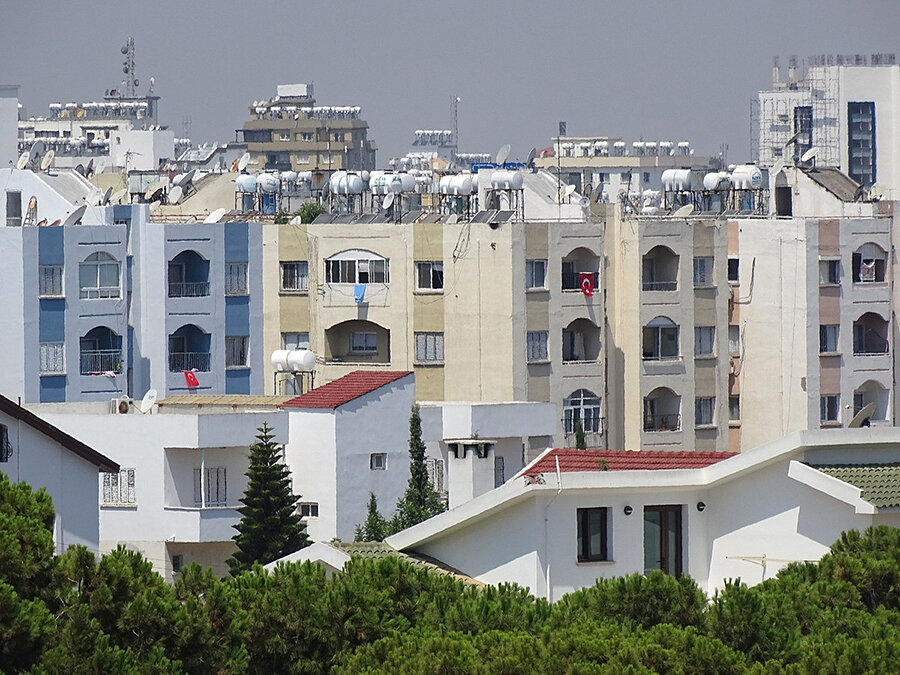read also
 Winter 2025 market report signals cautious recovery
Winter 2025 market report signals cautious recovery
 New Zealand investor visa: new opportunities to buy residential property
New Zealand investor visa: new opportunities to buy residential property
 Slow travel and dupe destinations 2026
Slow travel and dupe destinations 2026
 Key International Real Estate News Overview | Febriary 6–11
Key International Real Estate News Overview | Febriary 6–11
 Gen Z and Alpha Reshape Corporate Travel
Gen Z and Alpha Reshape Corporate Travel
 UK Tourism Faces Visitor Levy Debate
UK Tourism Faces Visitor Levy Debate
Cyprus Real Estate Market: Challenges Persist in 2025

The Cypriot real estate market faced a difficult year in 2024, and experts predict that many of these challenges will persist into 2025. Despite a decline in foreign investor activity, the market managed to achieve a modest overall growth of 1% in transactions compared to 2023, according to the Department of Lands and Surveys, as reported by Cyprus Property News.
December 2024 Sales Performance
In December, the total number of property transactions decreased by 1% compared to December 2023. While sales in the popular coastal district of Paphos surged by 34%, declines in Nicosia (-16%), Famagusta (-16%), and Limassol (-2%) led to an overall negative result.
Over the entire year, sales grew by 1%. Nicosia and Larnaca saw increases of 14% and 5%, respectively, but declines were recorded in Paphos (-8%), Famagusta (-5%), and Limassol (-1%).
Domestic Market Trends
The domestic market accounted for 63% of total transactions in December, with sales growing by 1% year-over-year. Limassol recorded a 29% increase, Paphos grew by 10%, and Larnaca rose by 2%. However, Famagusta experienced a 22% drop, while Nicosia declined by 19%.
For the full year, sales to Cypriot residents increased by 10%. Growth was observed in all districts except Famagusta, which saw a 16% decrease.
Foreign Market Dynamics
Transactions involving foreign buyers dropped by 5% in December compared to the same month in 2023. This category includes both EU and non-EU citizens. Paphos saw a significant 47% increase in sales to foreigners, while Nicosia recorded a modest 2% rise. However, sharp declines were noted in Limassol (-41%), Famagusta (-7%), and Larnaca (-4%).
Over the entire year, sales in the foreign market fell by 10%. While Nicosia (+19%), Famagusta (+13%), and Larnaca (+4%) recorded growth, sales plummeted in Limassol (-23%) and Paphos (-14%)—historically the most popular regions among international investors.
EU Citizens’ Activity
Sales to EU citizens (excluding Cypriots) dropped by 5% in December, making up 12% of total transactions (1,339). Paphos was the only district with a notable increase (+55%).
Annually, transactions with EU citizens decreased by 3%. Famagusta recorded a 22% rise, Nicosia saw a 10% increase, and Larnaca grew by 6%. However, Limassol declined by 13%, and Paphos saw an 8% drop.
Non-EU Buyers
Sales to non-EU citizens also fell by 5% in December, representing 25% of total transactions. Paphos recorded a 43% rise, while Nicosia (+22%), Famagusta (+15%), and Larnaca (+4%) also showed positive trends. However, a sharp 43% drop in Limassol contributed to the overall decline.
For the year, transactions with non-EU buyers dropped by 12%. Nicosia recorded a 28% increase, Famagusta grew by 7%, and Larnaca saw a 4% rise. In contrast, Limassol experienced a 26% decline, and Paphos fell by 16%.
Challenges and Outlook for 2025
Polis Koursouides, president of the Cyprus Association of Property Valuers, noted that the sector has adapted to ongoing geopolitical challenges, which are no longer seen as critical threats unless further escalations occur. He predicted that reduced interest rates in 2025 would help stimulate the real estate market, with apartments remaining the most popular investment. Local buyers typically spend between €250,000 and €300,000, while foreign buyers often invest up to €500,000.
Marinos Kineyirou, president of the Cyprus Real Estate Agents Registration Council, described 2024 as a challenging year, with the results reflecting prevailing market conditions and serving as indicators of potential issues for 2025. Delays in issuing permits by local authorities, along with prolonged strikes in the concrete industry, significantly impacted construction activity, delaying new projects and slowing the release of new properties to the market.
Kineyirou emphasized the importance of licensed real estate agents in maintaining market stability and protecting buyers. He also highlighted challenges including inflation, high interest rates, and the cost of housing.
"Geopolitical events and ongoing regional conflicts continue to affect the market, particularly by reducing interest from foreign buyers," Kineyirou said. He warned that these issues are likely to persist into 2025.
While Cyprus's real estate market managed to achieve slight overall growth in 2024, it remains under pressure from geopolitical tensions, economic challenges, and declining foreign investment. High borrowing costs and delays in construction projects have compounded these difficulties.
The outlook for 2025 hinges on interest rate reductions, improved regulatory processes, and greater market stability. However, the market’s dependence on foreign buyers, combined with persistent challenges in the global economy, suggests that Cyprus’s real estate sector will face continued uncertainty in the year ahead.


